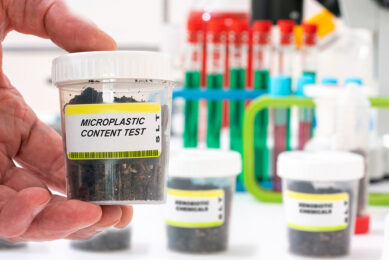Purdue: CAFOs offer mixed impact on communities
A Purdue University study finds confined animal feeding operations (CAFOs) in Indiana have a mixed impact on local government budgets and taxes.
The report says some CAFOs are able generate enough added tax revenue to cover the costs they create and some have tax bills that are able to provide relief to local taxpayers.
The study also finds that CAFOs have average wages of $12.38 per hour, higher than the average farm wage and comparable to county averages.
Large-scale animal production in eight Indiana counties is carried out by a mostly younger, educated work force and seldom violates state environmental regulations.
However, fiscal and zoning issues surrounding confined animal feeding operations (CAFOs) are more complicated, according to a study by four Purdue University researchers.
The 2007-08 study examined 50 CAFO’s and looked at demographics, labour, impacts on local government budgets, environment violations, and county planning and zoning.
"The expansion of CAFOs in Indiana has been controversial. The purpose of this research was to learn more about the issues and the impact of CAFOs on local communities," said Janet Ayres, an agricultural economist and research team leader.
There are approximately 645 CAFOs operating in Indiana. Ayres said the study only focused on swine and dairy CAFOs.
Findings present a snapshot of the confined feeding segment of Indiana’s animal agriculture industry and are not intended to represent the industry as a whole, Ayres said.
“Surveys indicated that CAFO operators make large feed and supplies purchases both locally and within Indiana and make greater use of hired labour than typical farm operations,” agricultural economist Roman Keeney said.
Wages average $12.38 per hour, compared to an average farm wage of $8.50 an hour.
Environmental issues
"Environmental violations by CAFO operations were uncommon," said Tamilee Nennich, an animal scientist.
"In the counties in the study, less than 1 percent of CAFOs were cited for water quality violations. There was also little evidence to suggest that the size or type of operation predicts an increase in the chance of an environmental violation occurring."
Operators with rules violations paid fines ranging from $1,000 to $25,000, with most between $5,000 and $10,000, Nennich said.
The impact of CAFOs on local government budgets and taxes was mixed, said Larry DeBoer, an agricultural economist.
"An analysis of county taxes and budgets shows that some CAFOs generate enough added tax revenue to cover the added costs they create, and some do not," DeBoer said.
Part of the CAFO tax bills provide tax relief for existing taxpayers, he added.











